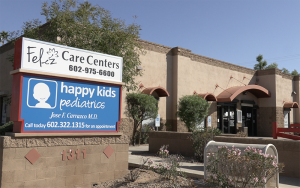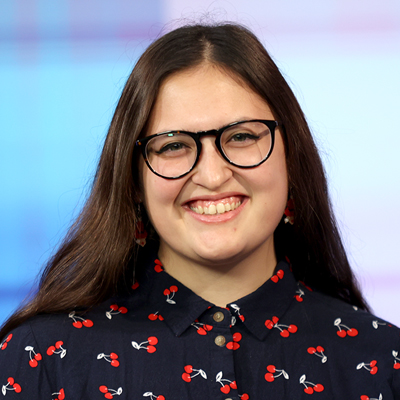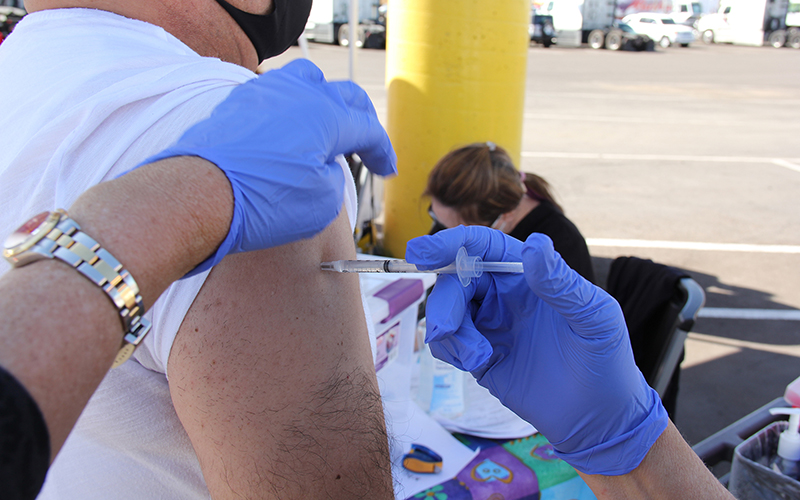PHOENIX – Pediatricians across the Valley are offering advance appointment scheduling for the Pfizer COVID-19 vaccine for ages 5 to 11. The Food and Drug Administration and the Centers for Disease Control and Prevention are expected to approve the vaccine, which currently is available to those 12 or older, as early as next week.
The state is expected to receive 224,700 pediatric doses with “many more doses to begin arriving soon after the CDC issues its recommendation,” according to a statement from Don Herrington, interim director of the Arizona Department of Health Services.
“The goal is simple: Kids already benefit from all kinds of safe and effective vaccines, and adding COVID-19 vaccination to the mix helps keep children, their families, their friends and their communities safe,” Herrington said.
Trials conducted by Pfizer and BioNTech found that their COVID-19 vaccine was 90.7% effective at preventing symptomatic COVID-19 infections among children 5 to 11 years old, according to the manufacturer. Pfizer and BioNTech tested the vaccine on 2,268 children in this age group, giving them a 10-microgram dose – a third of the dose administered to ages 12 or older.
The FDA will consider emergency administration of the vaccine for this age group Tuesday, with the CDC’s independent advisory committee meeting Nov. 2 and 3.
In advance of the expected approval, pediatricians are setting up vaccination appointments that will begin in November. Parents can find a map from ADHS of pediatricians offering vaccines to ages 5 to 11.
Drew Colbourne, the vaccine coordinator for Happy Kids Pediatrics, which has eight locations across metro Phoenix, said there’s no reason why the CDC or FDA wouldn’t approve vaccines for this age group.
Happy Kids Pediatrics has its first appointments set for Nov. 4. Colbourne said he’s already put in an order for vaccines of the child dosage to hopefully have by then.
“We’ve been vaccinating since the state of Arizona got the COVID vaccine,” he said. “I anticipate that once that indication goes down to 5 years of age that we’ll go through a lot more vaccines.”

Happy Kids Pediatrics has its first COVID-19 appointments for patients ages 5 to 11 set for Nov. 4. (Photo by Balin Overstolz-McNair/Cronkite News)
Colbourne said 14% of Happy Kids’ patients ages 5 to 18 are testing positive for the coronavirus that causes COVID-19, according to his data. He said approval for this vaccine will help curb that spread and, for vaccinated kids who do contract the virus, they will have a less severe case than someone who is unvaccinated.
“We want to do the best thing for the children, and I believe this vaccine is the right thing to do,” he said. “A lot of people get out there and have concerns with the vaccine, and it’s something I really recommend that parents talk about with their kids’ pediatrician and get their recommendation.”
Happy Kids will administer the vaccinations in-office. If the number of appointments continues to increase, Colbourne said, the group will look at a drive-thru option.
Debbie McCune Davis, the executive director for the Arizona Partnership for Immunization, said as more people have gotten vaccinated against COVID-19, the number of infections has gone down. But that’s left many school-aged children, who are too young for vaccines, vulnerable to the quick-spreading delta variant of the virus.
“What happens is the virus locates people who are not protected, and they become vulnerable, so with our kids, without having a vaccine for them, we’ve left them vulnerable to the circulating virus,” she said. “It’s really important that families learn about the benefits of this vaccine and make a decision by talking to their pediatrician about what they want to do to protect their own families.”
The partnership is a nonprofit organization that focuses on statewide education about vaccines through community activities and engagement. The organization’s website provides resources with science-based vaccine information, including information and updates regarding the COVID-19 vaccine.
McCune Davis said kids especially are “virus spreaders” because of how close in contact they are with other kids and aren’t as careful when it comes to preventing the spread.
“They forget to cover their mouth when they cough or sneeze, so I think this is a population where the vaccine will make a really big difference in slowing the spread of this particular virus,” she said. “There’s good information, good safety data available for parents to learn about the safety indications of the vaccine and that’s the review that’s going on right now at the federal level.”



